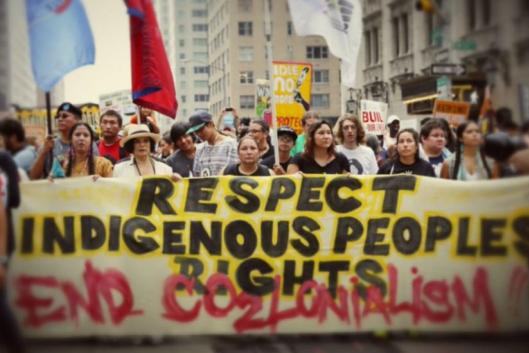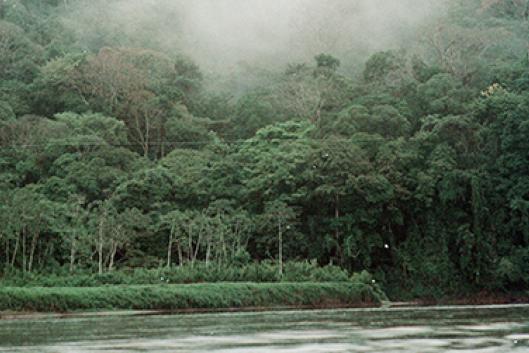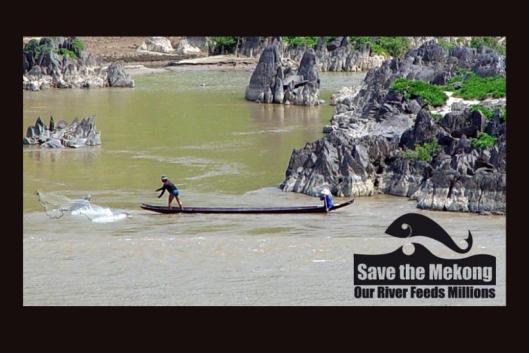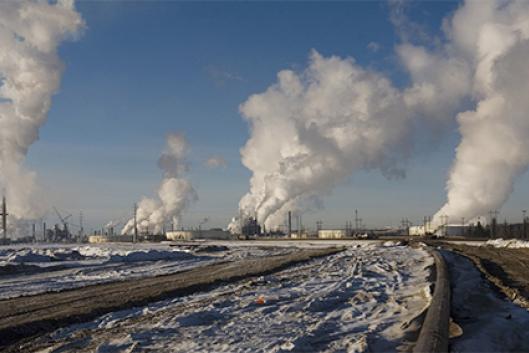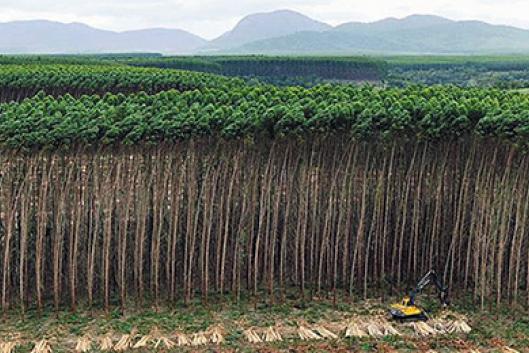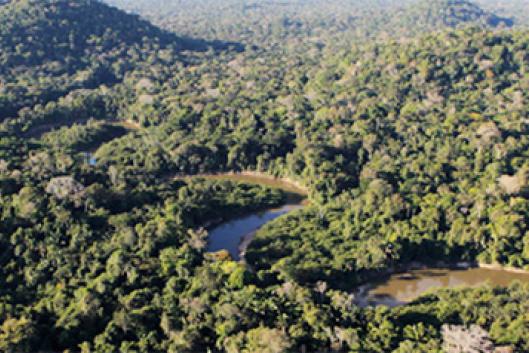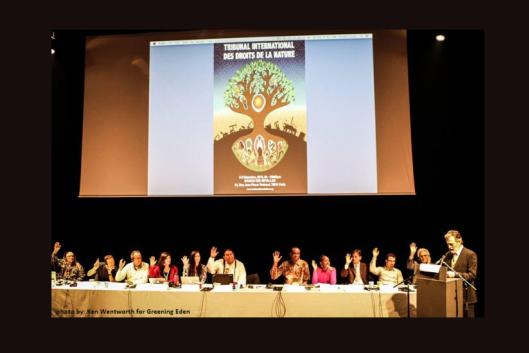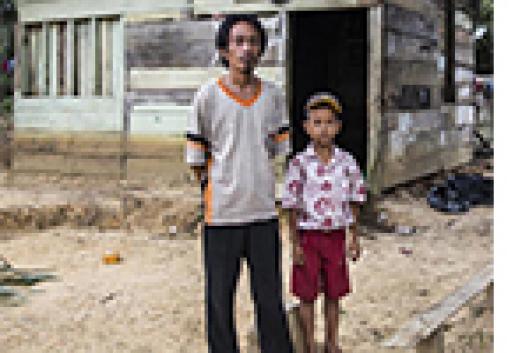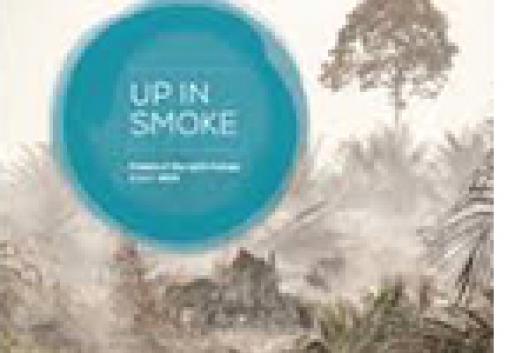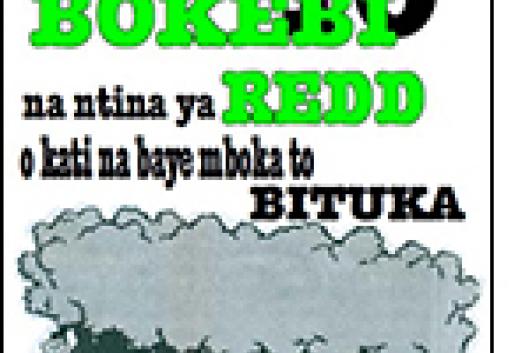There are many analyses of the Paris Agreement and the reasons why it is a disaster for the climate. One critique is that it does not address the basic issue of human rights. Meanwhile, beyond the text itself, the Agreement actually guarantees and strengthens the rights of transnational corporations and financial institutions. Indeed, these institutions were endorsed in the side events that took place in Paris, in which they announced plans and financing of false solutions to the climate crisis.
Bulletin Issue 221 – January | February 2016
The Paris agreement: worsening violations of rights and people's territories
WRM Bulletin
221
January | February 2016
OUR VIEWPOINT
THE PARIS AGREEMENT: WORSENING VIOLATIONS OF RIGHTS AND PEOPLE'S TERRITORIES
-
5 February 2016Continuous cycles of rebellion and resistance have characterized the history of a people living in the Costa Rican South Caribbean. Every 50 years, there are records of all types of actions carried out by the Bribri people in order to keep that that define them as such, the land. The burning of churches, resistance to monoculture banana plantations and struggles against dams, oil and gas have woven the history of this people. Their current adversary is not much different than the others, so the Bribri are standing up to them.
-
5 February 2016“The dams built on the Mekong mainstream and other rivers in the region have resulted in severe changes in the Mekong’s ecosystems, endangering life, livelihoods and the economy of the entire region. Indigenous peoples, women and children are most affected by these changes. The dams have also worsened the impacts of climate change that we are already facing.” “We have witnessed and experienced the destruction caused by the dams. For us, who live by the river and experience every change in the water systems, there is no question that such dams result in serious negative impacts for present and future generations, and should not be built” “Mekong governments: Listen to the people!”
-
5 February 2016For the majority of people in the Global North, little attention was given to the details of the recently signed agreement during the UN climate talks in Paris last December, sans a mention on the national news or a blurb on social media. Those who have been paying attention and attempting to highlight the incongruities of the details in the Paris Agreement, and the long history of these negotiations, beginning with the Kyoto Protocol, are largely from Indigenous and front line communities. Those surrounded by oil and gas drilling, transport, manufacture of deadly chemicals and petroleum byproducts, and monoculture industrial farming.
CASE STUDY: REDD IN THE DEMOCRATIC REPUBLIC OF THE CONGO
PEOPLES IN ACTION
-
5 February 2016Since joining Indonesia officially in 1969, Papua had only seven oil palm companies until 2005. In 2014, the number jumped to 21 companies, with another 20 companies gearing up to start their operations. In the midst of fierce conflicts between the oil palm industry and affected indigenous peoples, the central government launched a one million hectares rice fields program known as the Merauke Integrated Food and Energy Estate (MIFEE). The idea is to turn Papua in a centre for export oriented food and energy production. What will happen to the traditional communities in Papua whose lives depend on the forests?
-
5 February 2016Nyeli, a platform for the international movement for food sovereignty, launched a new issue of its newsletter last December. This time focusing on “Forests, foraging and the commons”, the newsletter reflects on the importance of forests, wild plants and the commons to people’s and communities’ food sovereignty. It also shares several experiences from different parts of the world. “Protecting and regenerating diverse natural environments and ways of eating and living in harmony with these environments are essential elements of food sovereignty.
-
5 February 2016The third International Tribunal for the Rights of Nature took place in Paris in parallel to the UN climate talks. Basing its judgements on the Universal Declaration for the Rights of Mother Earth and international human rights law while recognizing ecocide as a crime, the Tribunal provided a clear direction in each case on who is accountable and on what must be done to repair the harm and restore Earth (and communities) to health and well-being. Indigenous peoples from around the world played a leading role throughout the Tribunal as judges, experts and witnesses. The Tribunal strongly supported keeping fossil fuels in the ground as an essential approach to prevent further harm to Nature.
RECOMMENDED
-
5 February 2016An article from the “Food and Environment Reporting Network” highlights an investigation into the hidden toll of World Bank–financed development projects, which shows how evictions, loss of family income and other hardships associated with dams, roads and other projects can be especially harmful to young people. The case of a 9-year old coping with the trauma of eviction in Indonesia evidences how forced evictions can have long-lasting psychological impacts on children with post-traumatic syndromes.
-
5 February 2016A report by some of the Friends of the Earth groups shows how some of the fires that affected Indonesia’s forests in the last months can be traced to companies that supply or are owned by Wilmar International, a company that spurred a dramatic wave of sustainability pledges in the palm oil sector in December 2013. Despite new evidence that the company violates its own ‘no deforestation’ policies, this report sustains how major U.S. and European investors have not taken significant steps to address these problems. According to Indonesian law, the companies are legally responsible for the fires.
-
5 February 2016The report “12 Replies to 12 Lies about Oil Palm monocultures plantations”, which aims at strengthening the struggles of all those who are opposing large-scale oil palm plantations in the global South, is now also available in Swahili y Lingala. Access PDFs: Swahili:http://wrm.org.uy/fr/files/2013/06/12_responses_Swahili.pdf Lingala:http://wrm.org.uy/fr/files/2013/06/12_responses_Lingala.pdf
